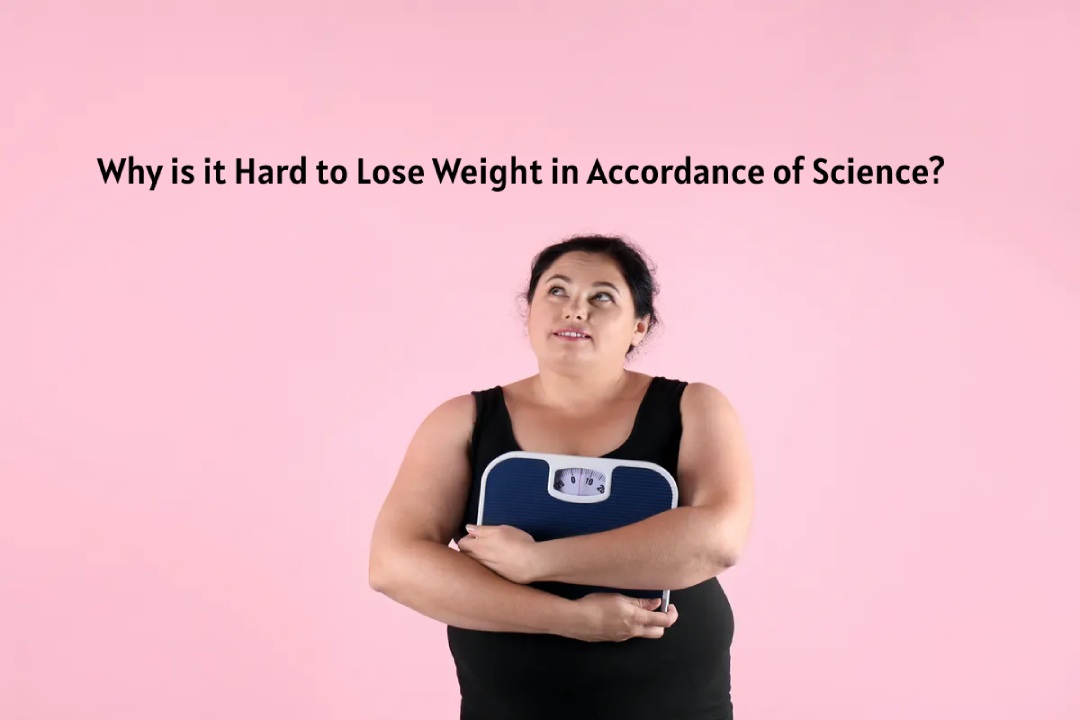Table of Contents
Introduction
You’ve done everything to lose weight you’re supposed to do. Eat according to the calories you need, train several times a week, and approach the weight you want to get. The weight loss curve is levelled a few pounds ahead of the required weight and does not seem to budge.
Complaints abound that these last five pounds (about 2.2 kg) may be the hardest to lose. The answer to this reveals a lot about the relationship between weight and appetite (or how we feel when we say we’re hungry) and how we humans are almost always ready to eat.
When dieting to lose weight, two leading causes of weight loss usually slow down over time.
According To Science
why weight loss is difficult according to science – the calories you need – the weight you want to get – weight loss over time
The first reason is that calorie consumption (energy) decreases with weight loss. Metabolism slows down because a lighter body needs fewer calories to maintain and move.
Calorie Consumption to Lose Weight
We can accurately estimate logically how calorie consumption changes by the weight. For example, a 175 cm, moderately active man, 45 years old and weighing 90 kg, needs to reduce his calorie intake from 3,200 to 2,270 calories a day to lose 15 kilograms in six months.
It should be noted that what we usually call calories (calorie) is a kilo of calories, which is equivalent to 1000 calories.
If you continue this 2,270-calorie diet per day, you’ll lose weight an average of 2.6 kg per month for the first five months and 1.8 kg in the last month. He will then need to eat about 2,780 calories a day to maintain 75 kilograms.
The second reason weight loss is gradually tricky is that an increase in appetite accompanies weight loss.
Leptin tells our brain about the amount of fat stored in our bodies. When we have more fat stored, the secretion of leptin increases and reduces our appetite. But when we lose body fat, leptin secretion is partially inhibited, making us hungrier.
Changing calorie consumption and the effect of fat stores on appetite cause long-term body weight stability. But their results are hardly noticeable in the short term.
The Factor Influencing
the factor influencing our needs during the day is the time of our last meal and how full we have felt since our last meal. In other words, we get starving when our stomach tells our brain that it is empty or almost empty.
Satiety is partly influenced by the proportion of fat, carbohydrates, and protein in the meal and the total size of the meal. For example, if the feed contains more fibre, the feeling of fullness increases. So it’s hard to eat many fruits and vegetables.
If apples were served to study participants instead of pizza, they wouldn’t be able to eat 1,580 calories. How twice that much? the concentration of calories in apples is only 50 calories per 100 grams, so participants will need to eat 3 kg of apples for 1,580 calories.
Pizza calories are about 280 calories per 100 grams, five times higher than its apple concentration. The satiety rate increases calories in foods with lower energy concentration. So we feel more full if we eat the same number of calories from apples instead of pizza.
unfortunately, foods with higher energy content are the most delicious! (e.g. pizza, chocolate and potatoes, which may contain more than 500 calories per 100 grams). Biologically, this may be because these foods are a valuable source of food, so the low-calorie satiety of these foods enables us to eat more of them.
So we’re prone to overeating high-calorie foods for two reasons. Not being full of their prices, being tastiest and having fun.
What does Research show how to Lose Weight?
But recent research shows that high-calorie foods don’t necessarily give us more fun when eating them. Instead, it may enable us to reduce calorie intake without significantly affecting our sense of pleasure.
For example, choosing to eat 100 grams of strawberry yoghurt (95 calories) instead of 100 grams of strawberry cheesecake (at least 250 calories) may be less fun, but not as much.
As you get used to it, you may find yourself choosing low-calorie foods and then controlling your weight.
Over time, however, it is difficult to eat a little food, with constant attention and restraint to resist the desire to eat delicious foods with greater energy density.
Conclusion
Hence lapses, as time passes. Our motivation for restraint and increased workouts is weakened. It also explains the problem of the difficulty of losing the last five pounds.
Generally, our weight settles at the point of balance between the temptation of our diet foods. The restraint to eat, and the energy we consume in physical activity.
We can change any three factors, although choosing low-energy foods, especially the most effective weight reduction strategy, remains. To Lose Weight and maintain a healthy weight, let’s remember that lighter objects require fewer calories.

